West Nile: What Kyagulanyi told voters
From pledging compensation for war-affected families to promising better roads, electricity, and local control over development, Kyagulanyi laid out a vision for his "new Uganda" blueprint.
Robert Kyagulanyi, the National Unity Platform (NUP) presidential candidate addressing his supporters at Moyo boys play grounds in Moyo districts. (Photos by Ponsiano Nsimbi)
________________
Robert Kyagulanyi, the National Unity Platform (NUP) presidential candidate, hit the roads of West Nile this past week, covering a total of nine districts in his push for the presidency ahead of next year's general elections.
From pledging compensation for war-affected families to promising better roads, electricity, and local control over development, Kyagulanyi laid out a vision for his "new Uganda" blueprint.
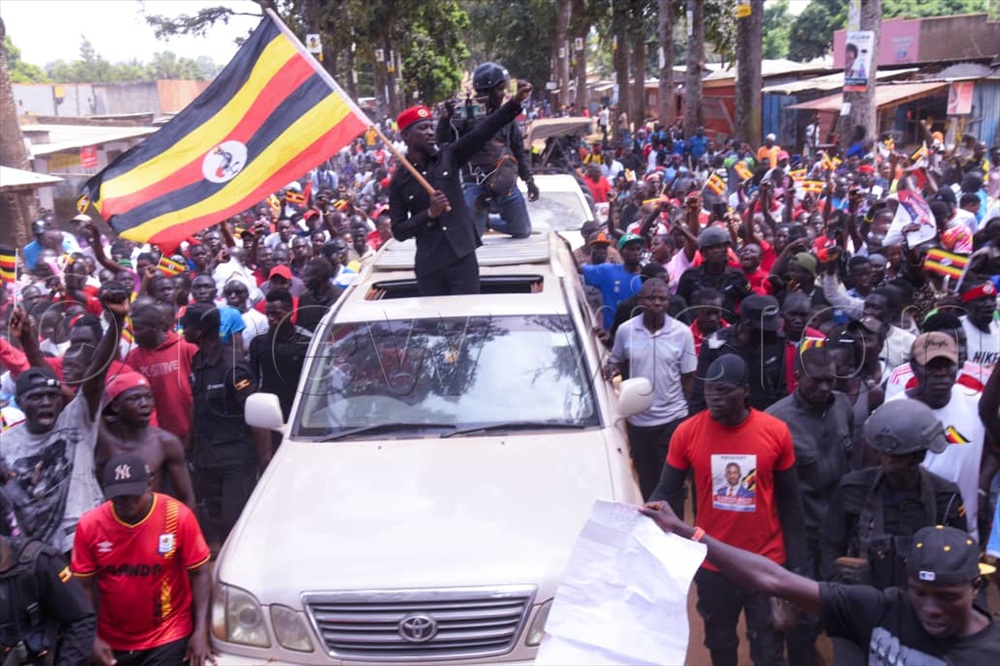
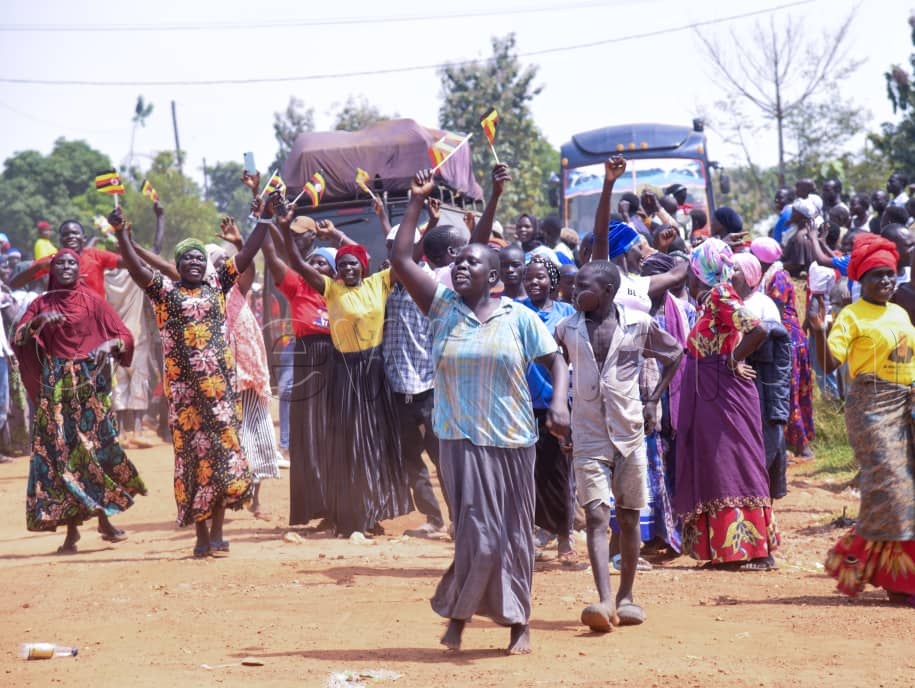
At rallies across Pakwach, Nebbi, Terego, Arua, Maracha, Koboko, Yumbe, Moyo and Zombo, Kyagulanyi framed his campaign around addressing what he called decades of neglect and inequality of the region. He promised to compensate communities still recovering from insurgencies in West Nile, Acholi, Lango, and Teso.
“Under our administration, war-affected areas will be compensated, and water and electricity will reach every region,” he told supporters at Wandi trading centre in Terego on Thursday (November 20).
He argued that addressing historical injustices is essential for national unity and economic recovery.
Kyagulanyi also pledged to decentralise government services, abolish military courts for civilians, and release political detainees, including former Forum for Democratic Change party president Kizza Besigye, who is facing treason charges. His vision included reviving cooperative unions, expanding electricity coverage, improving rural roads, and establishing regional industrial parks to create jobs.
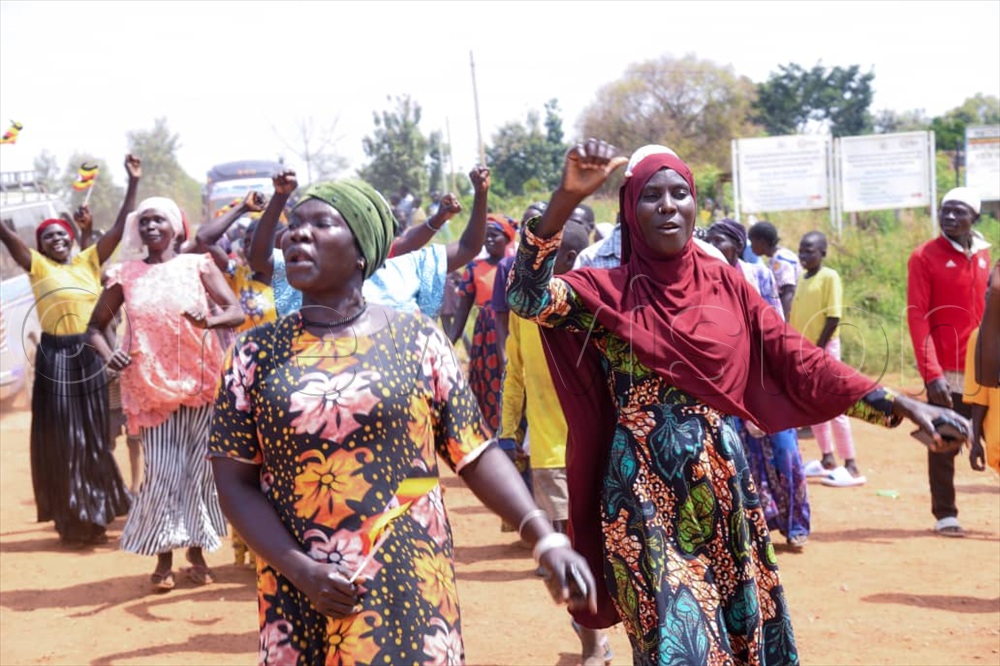
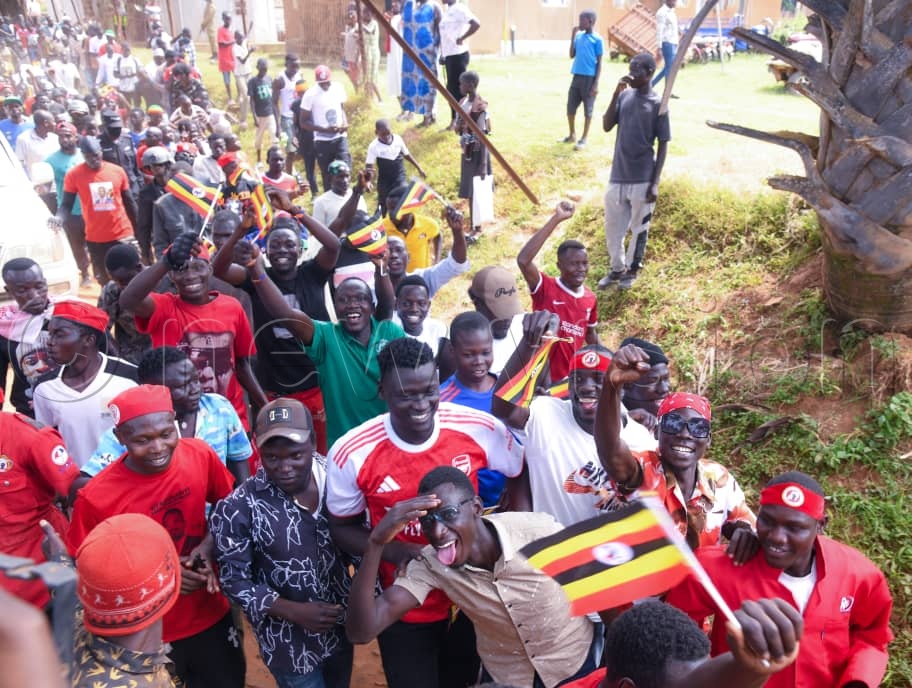
“Poor roads, unreliable utilities, and weak markets have kept West Nile’s economy from reaching its potential,” he said.
Infrastructure challenges hit home
Yet, the week’s campaign vividly illustrated the obstacles Kyagulanyi seeks to address. In Zombo and Madi-Okollo, rallies were delayed or cancelled when his convoy got stuck on impassable roads.
In Madi-Okollo, he spent a night in a hotel without running water or electricity, and his team had to prepare their own meals —an experience he used the next day to highlight rural hardship.
“These are not just inconveniences—they are symptoms of a leadership that has failed to prioritise the needs of its people,” he said, reinforcing the urgency of his infrastructure agenda.
He said if the region had good infrastructure, such as roads and electricity, more such areas would attract better private sector investment in areas such as hotels and hospitals.
Confrontations in Arua
The campaign’s most dramatic challenges, however, came in Arua city, where crowds that gathered to welcome him faced the inconvenience of blockages, and security forces responded with teargas and live bullets after he and the police failed to agree on routes to his rallies in the city.
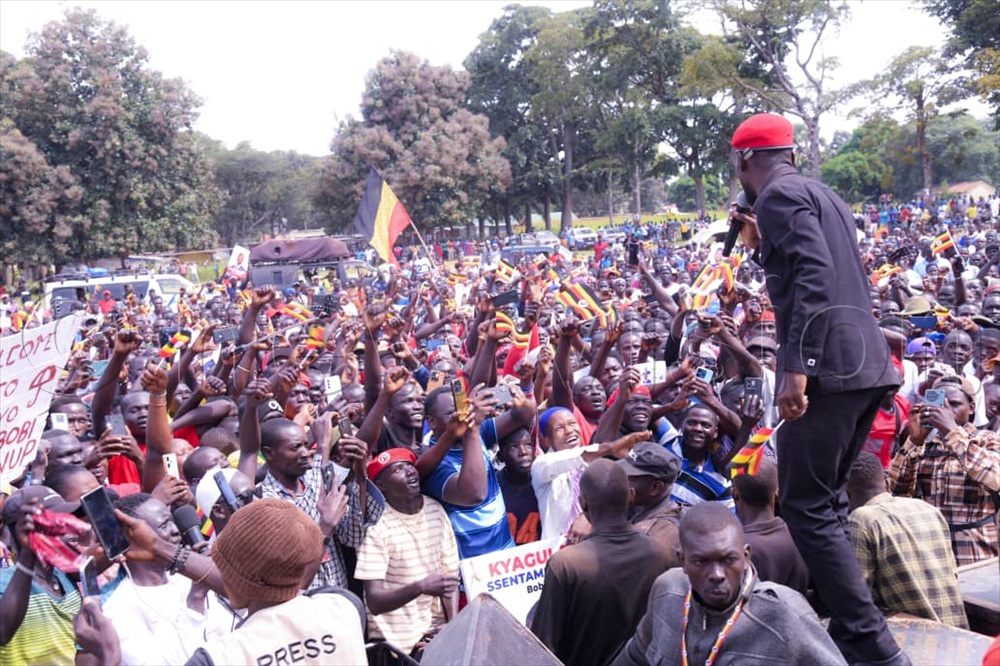
Several journalists, including Vision Group’s Paul Kiberu and David Tamale, were injured, and Tamale lost his phone and money.
Kyagulanyi insisted that his team remained peaceful, saying, “If the police are not involved, everything is peaceful,” he accused security forces of selectively blocking his movements while allowing other presidential candidates to proceed without interference.
However, in a statement on Thursday, West Nile Police region spokesperson Josephine Angucia accused Kyagulanyi of refusing to adhere to the "originally agreed route".
"Some of his supporters threw stones at police, damaging the following vehicles: UP 03271 at 16:59 hours (Registered under Arua CPS Station Diary Reference 65/19/11/2025) UP M/V 03346 at 17:34 hours (Registered under Arua CPS Station Diary Reference 70/19/11/2025) UP M/V 00173 at 17:35 hours (Registered under Arua CPS Station Diary Reference 71/19/11/2025) UP M/V 7697 (Registered under Arua CPS Station Diary Reference 78/19/11/2025)," Angucia said in a statement.
The Police added that separate cases of malicious damage have been opened, each with different reference numbers at Arua CPS. CCTV footage is being analysed to identify those involved in the damage to police vehicles. As of now, 32 suspects have been arrested following CCTV analysis.